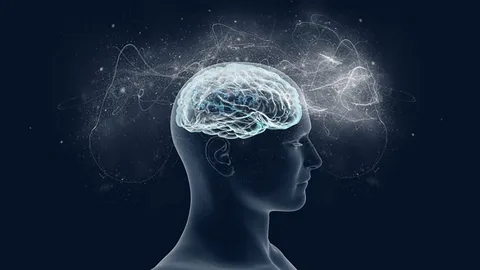Introduction
Conscious Evolution is a fascinating exploration into the intricacies of human behavior. This study delves into the multidimensional aspects of human actions, emotions, and thoughts, underscoring the influences of environment, genetics, culture, and personal experiences. As we journey deeper into the realm of Evolution, we seek to understand the underpinnings of human nature and how we can consciously guide our evolution, both individually and as a species. Strap in for a riveting journey into the complexities of the human mind.

Conscious Evolution
“Conscious Evolution” is a thought-provoking theory that delves into the realm of human potential. It suggests that as individuals, we possess the remarkable ability to influence our development and evolution through deliberate choices. This captivating concept emerged during the late 20th century, drawing inspiration from diverse disciplines such as science, philosophy, and spirituality.
By embracing the tenets of evolution, we transcend the notion of being mere passive recipients of evolutionary forces. Instead, we become active participants, wielding the power to shape our personal and collective destinies. This empowering perspective invites us to embark on a transformative journey, where we explore our unlimited potential and embrace the boundless possibilities that lie before us.
Role in Human Development
Conscious Evolution holds significant implications for human development. The theory advocates that through intentional thought and action, individuals can influence their growth and transformation, which, on a broader scale, could drive societal and global change. By embracing Conscious Evolution, we have the potential to shape our behaviors, values, and collective mindset to foster a more compassionate, sustainable, and inclusive world.
The Framework of Conscious Evolution
Biological Basis
The biological basis of Conscious Evolution finds its roots in the interplay between our genetic makeup and environmental influences. At the genetic level, our behaviors and tendencies may be influenced by the traits we inherit, but Conscious Evolution suggests that we can override these predispositions through conscious choice. The dynamic nature of our biology, especially in the context of neuroplasticity, further supports this theory. Neuroplasticity refers to our brain’s ability to rewire itself based on our experiences and actions, providing a biological basis for our capacity to consciously evolve.
Psychological Aspects
From a psychological perspective, Conscious Evolution revolves around the notion of self-awareness, intentionality, and personal growth. It maintains that through introspection and self-analysis, individuals can identify patterns of thought and behavior that may be detrimental to their growth and, by making conscious choices, overcome these barriers. The psychological aspects of Conscious Evolution also underscore the power of mindset – the belief in our capacity to change and evolve is a crucial factor in driving these transformations.
Interplay between Conscious Evolution and Human Behavior
Consciousness significantly influences human behavior. It forms the foundation for our cognition and perception, directly affecting how we interact with the world around us. The theory of Conscious Evolution further extends this concept, asserting that our consciousness can be actively harnessed to drive our actions and choices.
As we become more self-aware and mindful, we are better equipped to understand our emotions, motivations, and reactions. This heightened self-knowledge can lead to more informed decision-making, altering our behaviors in ways that align with our values and aspirations. Additionally, consciousness plays a vital role in our social interactions. It shapes our empathy, understanding, and communication, key components in our relationships with others.
Human Behavioral Patterns
Human behavior is a tapestry of intricate patterns woven from threads of cognition, emotion, and environment. These patterns, ranging from our habits and routines to our reactions and interactions, provide insight into our personality, values, and beliefs. They are informed by myriad factors including our experiences, learned behaviors, and even our genetic predispositions.
Complexity Theory and Human Behavior
The Complexity Theory, a key aspect of Conscious Evolution, provides a comprehensive framework for understanding human behavior. It posits that human behavior is a complex, dynamic system influenced by multiple interdependent factors that are constantly evolving. Rather than viewing behavior as a linear, cause-and-effect relationship, the Complexity Theory emphasizes interactions among various components such as cognition, emotion, and environment.
These interactions result in emergent behaviors, which are the behaviors we witness but cannot predict by looking at the individual components alone. Through the lens of the Complexity Theory, we can appreciate the multifaceted nature of human behavior and understand how conscious choices can yield significant changes in our behavioral patterns.
Predicted Behavioral Changes
Looking to the future, Conscious Evolution opens the door to predicted behavioral changes. As individuals become more self-aware and intentional about their growth, we can anticipate shifts toward more mindful and compassionate behaviors. This will likely manifest in people taking greater responsibility for their actions, showing increased empathy towards others, and making decisions that align with a more sustainable and balanced lifestyle. The process of Conscious Evolution could also propel individuals to value emotional intelligence and interpersonal connections more, shifting away from materialistic values and towards those that promote overall well-being and connection.

Role of Technology in Conscious Evolution
In the realm of Conscious Evolution, technology plays a multifaceted role. On one hand, it acts as an enabler, providing tools and platforms that promote self-awareness, mindfulness, and personal growth. With advancements in neurotechnology, for instance, we can better understand the workings of our brains and potentially harness this knowledge to facilitate conscious change.
Virtual reality can provide immersive experiences that offer new perspectives and empathy towards others. On the other hand, technology poses challenges for Conscious Evolution—it can create distractions, promote superficial interactions, and even contribute to unhealthy behaviors. Thus, navigating the role of technology in Conscious Evolution requires mindful engagement and conscious choices.
FAQs
What is conscious evolution?
Conscious Evolution pertains to the theory that individuals possess the ability to actively shape their evolution through mindful decision-making and self-awareness. This process fosters personal growth and deliberate behavioral transformations.
How does conscious evolution relate to human behavior?
Conscious Evolution emphasizes the utilization of our consciousness to drive our actions and choices. It highlights the power of mindset and the belief in our capacity to change and evolve.
What is the complexity theory concerning conscious evolution?
The Complexity Theory, a fascinating aspect of Conscious Evolution, perceives human behavior as an intricate and ever-changing system, shaped by a web of interconnected factors. It transcends simplistic cause-and-effect connections, highlighting the intricate interplay of cognition, emotion, and environment. Prepare to delve into the captivating world of the human experience!
Conclusion
Conscious evolution provides profound insights into the intricate interplay between consciousness and human behavior. It offers a comprehensive perspective of human behavior, emphasizing the dynamic nature of our actions and reactions as shaped by a multitude of interdependent factors. Conscious Evolution underscores the transformative power of self-awareness and intentional decision-making in driving personal growth and positive behavioral changes.
Despite the challenges posed by factors like technology, the potential of Conscious Evolution in promoting mindfulness, empathy, personal responsibility, and sustainable values is immense. As we continue to navigate and understand the complex tapestry of human behavior, Conscious Evolution serves as a beacon illuminating the path towards intentional growth and evolution.




